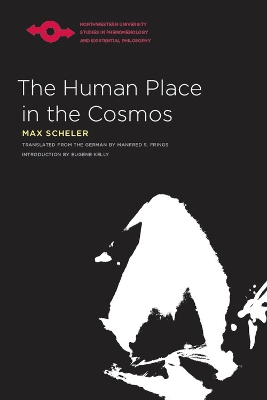Upon Scheler's death in 1928, Martin Heidegger remarked that he was the most important force in philosophy at the time. Jose Ortegay Gasset called Scheler 'the first man of the philosophical paradise.' ""The Human Place in the Cosmos"", the last of his works Scheler completed, is a pivotal piece in the development of his writing as a whole, marking a peculiar shift in his approach and thought. He had been asked to provide an initial sketch of his much larger works on philosophical anthropology and metaphysics - works he was not able to complete because of his early demise.Frings' new translation of this key work allows us to read and understand Scheler's thought within current philosophical debates and interests. The book addresses two main questions: What is the human being? And what is the place of the human being in the universe? Scheler responds to these questions within contexts of his projected larger works but not without reference to scientific research. He covers various levels of being: inorganic reality, organic reality (including plant life and psychological life), all the way up to practical intelligence and the spiritual dimension of human beings, and touching upon the holy.Negotiating two intertwined levels of being, life-energy ('impulsion') and 'spirit', this work marks not only a critical moment in the development of his own philosophy but also a significant contribution to the current discussions of continental and analytic philosophers on the nature of the person.
- ISBN13 9780810125292
- Publish Date 1 January 2009
- Publish Status Active
- Publish Country US
- Imprint Northwestern University Press
- Format Paperback
- Pages 112
- Language English
